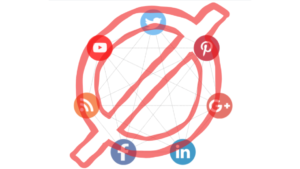
Bebaak Collective’s report, Behind the Pixels: Social Silencing and Isolation of Indian Muslims in the Online Public, report throws light on the nature and prevalence of digital hate and violence against women. It documents and understands the ways in which Indian Muslims, particularly Muslim women, are being subjected to constant humiliation and forced into isolation from public and political affairs. Published in May 2024, the report draws the connection between online and offline lives and worlds, where data does not remain mere information but is embodied, and people are harmed materially. Through the lived realities of Muslim women, the report also discusses how to navigate such Islamophobic and gendered political culture.
Free Speech Collective shares below an excerpt from this significant report*.
(*To read the full report, please write to Bebaak Collective at bebaakcollective@gmail.com.)
Economies of Online Hate
From free internet to social media spreading hate
The 21st-century internet and technology boom began with the idea of a free internet accessible to all, functioning as a democratic space beyond state or corporate control. Instead, this supposedly free internet has enabled the propagation of hate against Muslims, women, Dalits, and queer-trans people.
“Previously, there was a genuine sense that the internet is a democratic, free space. It is not like electronic or any other media, which is only unidirectional, where you cannot ask questions. Internet is people-to-people communication, beyond borders, something that the poorest person can access, given whatever constraints, because in most countries, the internet is supposed to be free.” (G, journalist)
The idea of a free internet did not last as internet companies pursued business interests requiring government permission. Consequently, the internet came under the control of ruling regimes, which fostered partnerships with Big Tech companies.[1]
This transformation rendered the once-free internetinto a vehicle for spreading hate and violence. Over time, social media companies also proved opaque, and unresponsive to controlling hate on their platforms, whether in the restoration of accounts or removal of abusive content. The business model of Big Tech thrived on hate speech to create traffic, swiftly transforming the internet from a space of free speech to one of hate speech.
Reports by the United Nations and many organisations show that Islamophobia is more prevalent on the web than in real life. It is fuelling a vicious cycle, where online expressions of hate incite offline attacks on Muslims, which in turn provoke more online hate.
According to a report by Umar Butler, 85 per cent of all anti-Muslim posts are from India, the US, and the UK, and 55.12 per cent of Islamophobic tweets originate from India (Butler 2022). Research suggests that ‘market and technological dynamics of the new media’ have intensified the ‘climate of suspicion and antagonism to the religious other’ (Udupa 2015).
“If we look at the last 10 years, the social media platforms have been used as amplifiers of hate politics, campaigns against Muslims and other religious, sexual minorities. That has been the predominant role of social media…some of us have benefitted. But it is largely crowded and predominantly used for spreading hate and enabling an environment for violence against Muslims especially.” (Me, journalist)
News and messages containing hateful, controversial, sensitive, and sensual content drive traffic on social media, serving as a ‘behavioural surplus’ to predict and shape human behaviour.[2]
The behavioural surplus fuels the economy of hate and sustains ‘surveillance capitalism’ (Zuboff 2019). Since the 2000s, Big Tech companies like Google have profited from this surplus (Zuboff 2019), particularly in right-wing and fascist regimes where surveillance capitalism flourishes amid growing demand for predictions and influencing behaviour.
Examples of such practices include customised feeds on our Facebook, Instagram, and Twitter, and strategically timed purchase prompts.
Online activities and scrolling generate surplus behavioural data, shaping offline behaviour, particularly concerning hatred and violence in the contemporary world. Internet companies and those in power benefit from such economies of hate, often aligning with the agendas of fascist regimes. Moreover, electronic and print media are intertwined with social media and the internet, with social media trends frequently shaping news priorities.
[1] The multinational companies using user data and creating profits and benefits from it have been referred to as the internet, Big Tech, or social media companies interchangeably in the report.
[2] ‘Behavioural surplus’ is behaviour data that was once discarded and ignored. After the 2000s, the data was stored to predict human behavior; ‘data reserves that is more than what is required for product and service improvements.’ (Zuboff 2019)


